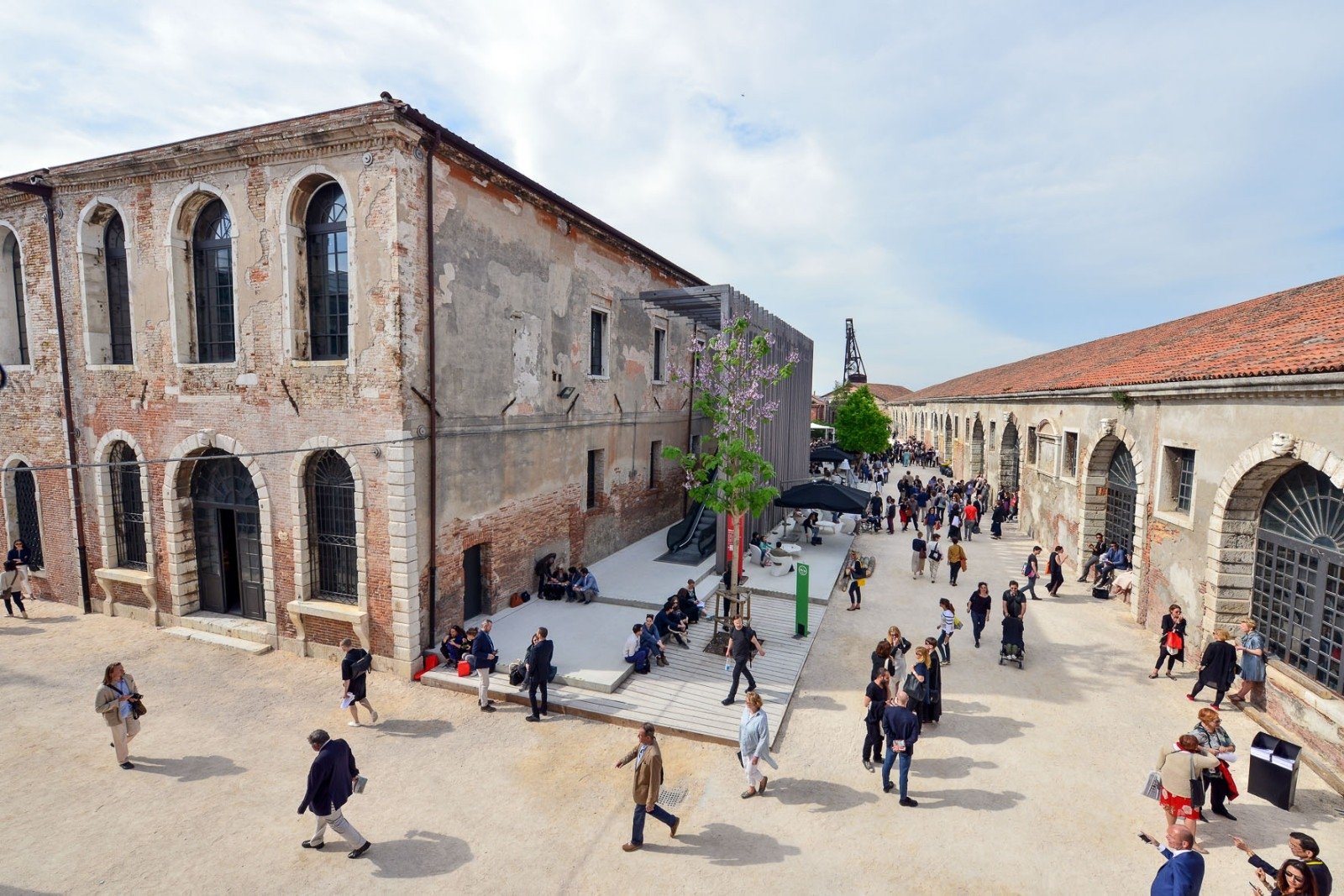© Turkuvaz Haberleşme ve Yayıncılık 2026
The Venice Biennale's (La Biennale di Venezia) 17th International Architecture Exhibition, one of the most important architectural events in the world, is being held between May 22 and Nov. 21 this year under the title of “How We Live Together?” The Pavilion of Turkey will present the exhibition "Architecture as Measure", which was coordinated by the Istanbul Foundation for Culture and Arts (IKSV), throughout the biennale. The show demonstrates how architecture can shed new perspectives on the climate crisis.
The exhibition, named after its curator Neyran Turan's book "Architecture as Measure," published in English in March 2020, serves as the basis of architectural contracts, zoning laws, technical standards, specifications and mineral extraction. It underlines that supply chains, construction installations, labor, maintenance or inspection practices not only leave deep marks on the physical practice of architecture but also reflect our values and assumptions about what “environment” means to architecture.
The show starts with a question: "Instead of simply reducing the role of design to finding solutions to the problem of climate change, can we think of architecture as a measure by which the environment is reimagined?" Presented through an installation, an online publication and storytelling, “Architecture as Measure” focuses on the nuances of the seemingly mundane aspects and sites of architectural construction.
The four-room installation section of "Architecture as Measure," designed by NEMESTUDIO, is titled “Four Dioramas.” A diorama, in this sense, is a three-dimensional modeling of a real or fictional event, moment or story. Each diorama features a generic site of architecture with banal details and a specific mise-en-scene of an imaginary story taking place in Turkey. Visitors can walk through the dioramas as if they were inside an architectural model.
In the "Diorama of Quarry," one can see a long-abandoned marble quarry after its resources have been extracted. The “Diorama of Logistics” is a large warehouse on the route of immense migration, with many different species heading for a new country. Antiquities and countless more-than-human settlers await their final journey here. The “Diorama of Maintenance and Care” is a repair site where buildings and more-than-human settlers receive regular attention and maintenance while the “Diorama of Formwork” is a site of reconstruction for the future inhabitants of the earth.
In the "Architecture as Measure" project, the physical installation is accompanied by online interviews, articles, stories and research processes accessible from all over the world on their website. The content presented by the project's curatorial team and invited participants will be published on the website at regular intervals throughout the year.

The website consists of four main sections: paperwork, episodes, conversations and essays. The paperwork section presents the research findings on the architectural paperwork bureaucracy, which runs the extraction, maintenance-repair, logistics and construction protocols of the exhibition, showcasing a wide range of content compiled by the curatorial team and invited participants. The episode section focuses on the environmental controversies by restaging some of the content within the installation through drawings and storytelling. The conversation sections include invited contributions related to the themes of the exhibition while the website presents content written by the pavilion’s curatorial team and the invited contributors, published periodically over the course of the biennial.
E. Ece Emanetoğlu, Melis Uğurlu, Betsy Clifton and Samet Mor made up the team of assistant curators while Ian Erickson served as editorial assistant. Paleworks, founded by Yağmur Ruzgar and Ozan Akkoyun, created the visual identity of "Architecture as Measure" and was in charge of graphic design.
Speaking about the Pavilion of Turkey, IKSV Chairperson Bülent Eczacıbaşı said, “As the Istanbul Foundation for Culture and Arts, we have been working since March 2020 to continue our contributions to culture and art during the pandemic and to ensure the continuation of artistic production. We spread art with new methods in solidarity with different institutions. We wholeheartedly believe that culture and art give us strength by feeding our souls and minds under all circumstances and by reminding us that we are a part of a universal whole. As IKSV, we are pleased to be able to provide our country's representation at the Venice Architecture Biennale in this extraordinary year."
Talking about the Pavilion of Turkey and “Architecture as Measure”, Özgül Özkan Yavuz, Turkey's Deputy Minister of Culture and Tourism, also said: “Our ministry has been supporting our county’s exhibitions at the Venice Biennale since 1991. Our exhibition at the International Architecture Exhibition of the biennial is a very good example of an achievement that has been realized by cooperation and collaboration among the public and private sectors and civil society. We make an impression on one of the astonishing international platforms and we share our country’s past and contemporary experience on arts and architecture. The collaboration that blossoms out of our ministry’s contributions, the efforts of IKSV, and the supports of our sponsors is the key factor of our success here. I hope our exhibition reaches many people around the world, and I congratulate everyone who contributed to this exhibition.”
